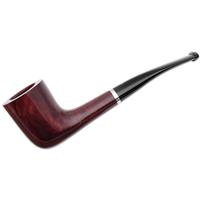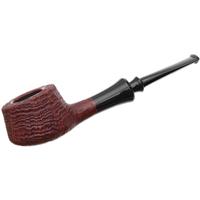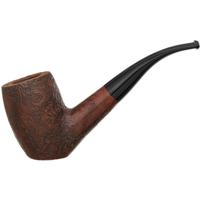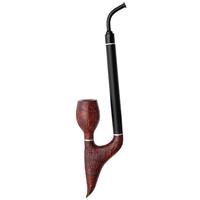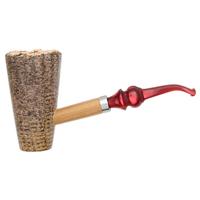I would think avoiding war with Russia (as Warren pointed out) must have been a big part of the equation there as well.But anti-slavery sentiment within England, along with a growing realization that the South lacked the resources to win, even with help, caused England to withdraw its aid to the South.
Shelby Foote's Civil War Trilogy...Any Good?
- Thread starter mawnansmiff
- Start date
You are using an out of date browser. It may not display this or other websites correctly.
You should upgrade or use an alternative browser.
You should upgrade or use an alternative browser.
- Status
- Not open for further replies.
Another factor that played into it was the realization that the North was fully capable of waging a two front war and of making good on the implied threat to invade Canada. Fun times!I would think avoiding war with Russia (as Warren pointed out) must have been a big part of the equation there as well.
Well the news has now finished and the American vote I was awaiting the result of has now passed. Pretty much a foregone result but I just wanted to be certain.
_________________________________________________________________________________
Back to current matters....
"Another factor that played into it was the realization that the North was fully capable of waging a two front war and of making good on the implied threat to invade Canada."
Now that is something I wasn't aware of as no mention of it has been made to me.....considering making war with Canada. I suspect I'll get more details on that specific as I progress my learning venture.
Also the Russian thing, scaring off European countries from getting involved.....all news to me.
Regards,
Jay.
_________________________________________________________________________________
Back to current matters....
"Another factor that played into it was the realization that the North was fully capable of waging a two front war and of making good on the implied threat to invade Canada."
Now that is something I wasn't aware of as no mention of it has been made to me.....considering making war with Canada. I suspect I'll get more details on that specific as I progress my learning venture.
Also the Russian thing, scaring off European countries from getting involved.....all news to me.
Regards,
Jay.
England saw the United States as a threat to "Rule Britannia", a possible up-start which would move England in "second place", despite its disavowal of any interest in becoming an "empire". And, it is indeed true that many pf the powerful were still smarting from "The War of 1812" as we call the "Napoleonic Wars." Plus, there were still those hurt feelings from the pesky "Revolution."
Canada was felt to be the logical avenue into the US by a British invasion force. I've not found information that such was more than a "pipe dream" in the UK government. Canada could very well have taken advantage of the situation and proclaimed it's independence from the Crown. But, the idea was voiced now and then early in the war. The King simply had a hard time believing that other countries would not have the same interests as England did, trade domination, improving the native's plight around the world, and domination of the seas.
If France and England could have come to some accord with regard to the US, things might have turned out differently. But, neither country trusted the other to not take advantage of the other. Probably very well placed mistrust I think.
The world was very unsettled at the time. England was the major world power, sea and land but, stretched very thinly across the earth.
I do hope I'm not spoiling your studies or confusing them. But, there is much not covered in the "major works" on the civil war. It was a compelling time and that war caused ripples throughout the "Western World."
I'll try and keep my fingers off the keyboard for a while. But, it's a subject I've studied deeply since age 12 or so. At one time I had nearly a thousand items, (books, pamphlets, broadsides, audio tapes, collections of letters, etc.) on my bookshelves covering the War. It was almost an avocation, certainly more than a hobbyists interests. I had hoped to write "The Great American Novel" but, Larry McMurtry beat me to it.
I can be boring on the subject and I apologize if I spoiled the ending for you. : :
:
Canada was felt to be the logical avenue into the US by a British invasion force. I've not found information that such was more than a "pipe dream" in the UK government. Canada could very well have taken advantage of the situation and proclaimed it's independence from the Crown. But, the idea was voiced now and then early in the war. The King simply had a hard time believing that other countries would not have the same interests as England did, trade domination, improving the native's plight around the world, and domination of the seas.
If France and England could have come to some accord with regard to the US, things might have turned out differently. But, neither country trusted the other to not take advantage of the other. Probably very well placed mistrust I think.
The world was very unsettled at the time. England was the major world power, sea and land but, stretched very thinly across the earth.
I do hope I'm not spoiling your studies or confusing them. But, there is much not covered in the "major works" on the civil war. It was a compelling time and that war caused ripples throughout the "Western World."
I'll try and keep my fingers off the keyboard for a while. But, it's a subject I've studied deeply since age 12 or so. At one time I had nearly a thousand items, (books, pamphlets, broadsides, audio tapes, collections of letters, etc.) on my bookshelves covering the War. It was almost an avocation, certainly more than a hobbyists interests. I had hoped to write "The Great American Novel" but, Larry McMurtry beat me to it.
I can be boring on the subject and I apologize if I spoiled the ending for you. :
 :
:Well, it's not like the fighting went on all year long. Winter would put quite a dent in the activities as weather conditions made campaigning almost impossibly difficult. Plus, soldiers would take furlough to get the planting and harvesting done.Curious that the South was out-manned, out-equipped, out-generaled, etc, etc, etc and it took the North how long to subdue them?
Certainly the North missed a couple of opportunities to bring the War to an earlier conclusion, and some of their Generals left much to be desired. McClelland wasn't exactly a genius.
But compared to the South, they had an almost inexhaustible supply of munitions and personnel.
elpfeife: My apologies, my earlier answer to your question was abrupt and impolite. The short answer is that it takes time to put an economy on a war footing. Then one must form armies from a very small peacetime cadre, ala WWI and WWII, then there is the time required to find the correct leaders who will follow the chosen strategy.
Lee was skilled and lucky, in that early on, after taking over from Johnston, he faced a number of Union Generals who thought the objective was Richmond. Thus he enjoyed the luxury of fighting a number of defense battles, at which he excelled and his lack of soldiers dictated. In front of Richmond even McClellan fought him to a standstill. Lee hadn't the support of competent subordinates when he decided to fight in an offensive manner. Many of his underlings worked hard after the war to write a defense of their actions or, lack thereof. Lee, held a civil tongue, did not write and was dedicated to healing the scars.
Lincoln couldn't find a general, until Grant, who understood Lee was to be Meade's only objective and that the Confederacy would collapse under a strategy which sapped the will of the South to fight, a war of attrition by attacking in a coordinated manner across a wide front. Many Confederate soldiers simply melted away from the armies until there really was nothing to fight with.
Grant was ably supported in his strategy. Poor old Jeff was saddled with a bunch of political generals, by and large, more intent on personal acclaim than fighting a defensive war, the only kind of war the South could have possibly won. And then, only if the Union had lost heart. Davis couldn't adapt, he couldn't turn aside from old friends and he couldn't get his young country to act as one entity. That damned old bugaboo of "states rights" simply put him in a straitjacket. He couldn't wage war with so many enemies inside his country, governors, generals, his cabinet, etc.
Davis had his Beauregard, the other Johnston (Albert), the Johnston (Joseph), Longstreet (who failed Lee at Gettysburg), Bragg, Polk, and the list goes on. Lincoln had Freemont, McClellan, Hooker, Burnside, and others. Lincoln discarded the useless when politics permitted, reassigned others to unimportant positions. Davis tended to keep his failures close at hand and use them over and over. His loyalty was a negative in many cases.
Please, do not take anything I write to impugn the bravery and fighting ability of the individual soldier in either blue, butternut brown or gray. The Confederate armies were out-fought. There were enough bodies on both sides to attest to the fighting ability of the individual soldier.
Lee was skilled and lucky, in that early on, after taking over from Johnston, he faced a number of Union Generals who thought the objective was Richmond. Thus he enjoyed the luxury of fighting a number of defense battles, at which he excelled and his lack of soldiers dictated. In front of Richmond even McClellan fought him to a standstill. Lee hadn't the support of competent subordinates when he decided to fight in an offensive manner. Many of his underlings worked hard after the war to write a defense of their actions or, lack thereof. Lee, held a civil tongue, did not write and was dedicated to healing the scars.
Lincoln couldn't find a general, until Grant, who understood Lee was to be Meade's only objective and that the Confederacy would collapse under a strategy which sapped the will of the South to fight, a war of attrition by attacking in a coordinated manner across a wide front. Many Confederate soldiers simply melted away from the armies until there really was nothing to fight with.
Grant was ably supported in his strategy. Poor old Jeff was saddled with a bunch of political generals, by and large, more intent on personal acclaim than fighting a defensive war, the only kind of war the South could have possibly won. And then, only if the Union had lost heart. Davis couldn't adapt, he couldn't turn aside from old friends and he couldn't get his young country to act as one entity. That damned old bugaboo of "states rights" simply put him in a straitjacket. He couldn't wage war with so many enemies inside his country, governors, generals, his cabinet, etc.
Davis had his Beauregard, the other Johnston (Albert), the Johnston (Joseph), Longstreet (who failed Lee at Gettysburg), Bragg, Polk, and the list goes on. Lincoln had Freemont, McClellan, Hooker, Burnside, and others. Lincoln discarded the useless when politics permitted, reassigned others to unimportant positions. Davis tended to keep his failures close at hand and use them over and over. His loyalty was a negative in many cases.
Please, do not take anything I write to impugn the bravery and fighting ability of the individual soldier in either blue, butternut brown or gray. The Confederate armies were out-fought. There were enough bodies on both sides to attest to the fighting ability of the individual soldier.
"I'll try and keep my fingers off the keyboard for a while."
Warren, please don't. Your knowledgeable input is fascinating and much appreciated and I'm sure I speak for all readers of this thread. I rather wish I had you sat beside me whilst watching Burns' DVD set so as to answer the many questions I have, particularly on locations and main players. As it is I have my Kindle beside me so I can do quick lookups.....such as today re the Battle of Bull Run!
"But, it's a subject I've studied deeply since age 12 or so. At one time I had nearly a thousand items, (books, pamphlets, broadsides, audio tapes, collections of letters, etc.) on my bookshelves covering the War."
Have you ever considered putting your knowledge of the subject down on paper for all to enjoy? No easy feat I don't doubt but you clearly have a passion for the subject that would make the effort that much easier. On a topic of such magnitude and importance, there can never be too many books to choose from. I might even be tempted to buy a copy myself :wink:
Well worth a thought whilst next enjoying your evening dram or glass of port.
Regards,
Jay.
Warren, please don't. Your knowledgeable input is fascinating and much appreciated and I'm sure I speak for all readers of this thread. I rather wish I had you sat beside me whilst watching Burns' DVD set so as to answer the many questions I have, particularly on locations and main players. As it is I have my Kindle beside me so I can do quick lookups.....such as today re the Battle of Bull Run!
"But, it's a subject I've studied deeply since age 12 or so. At one time I had nearly a thousand items, (books, pamphlets, broadsides, audio tapes, collections of letters, etc.) on my bookshelves covering the War."
Have you ever considered putting your knowledge of the subject down on paper for all to enjoy? No easy feat I don't doubt but you clearly have a passion for the subject that would make the effort that much easier. On a topic of such magnitude and importance, there can never be too many books to choose from. I might even be tempted to buy a copy myself :wink:
Well worth a thought whilst next enjoying your evening dram or glass of port.
Regards,
Jay.
Jay: I much appreciate your kind words. I much prefer to lecture than write. The research is rewarding and speaking to a group is also.
I have the entire hardcover edition, 100+ volumes, for research. Below is one of the many sites which allow you to have it in your home and not use thirty plus feet of book shelve space.
http://www.wiu.edu/libraries/govpubs/war_ofthe_rebellion/
Nearly all of the correspondence for the Union Armies and much of the Confederate is available. The Southern archives were mostly destroyed with the burning of Richmond.
Trust me though, you must have a deep and abiding interest in the minutia of the armies to wade through, seeking specific information. If you have an interest in "order of battle" and where certain elements fought this is a valuable resource.
Feel free to PM me with any questions or observations. Or, if you prefer, post here and get a mixture of viewpoints as I am probably somewhat biased, tending to lean toward the "Lost Cause" in sympathies. There is a sadness in studying the "underdog" fighting a fight, certain to be lost, for all the wrong reasons. The Confederacy did all they could considering their self-imposed constraints. A series of "forlorn hope" events (In the strictest British Army definition) tactics.
I have the entire hardcover edition, 100+ volumes, for research. Below is one of the many sites which allow you to have it in your home and not use thirty plus feet of book shelve space.
http://www.wiu.edu/libraries/govpubs/war_ofthe_rebellion/
Nearly all of the correspondence for the Union Armies and much of the Confederate is available. The Southern archives were mostly destroyed with the burning of Richmond.
Trust me though, you must have a deep and abiding interest in the minutia of the armies to wade through, seeking specific information. If you have an interest in "order of battle" and where certain elements fought this is a valuable resource.
Feel free to PM me with any questions or observations. Or, if you prefer, post here and get a mixture of viewpoints as I am probably somewhat biased, tending to lean toward the "Lost Cause" in sympathies. There is a sadness in studying the "underdog" fighting a fight, certain to be lost, for all the wrong reasons. The Confederacy did all they could considering their self-imposed constraints. A series of "forlorn hope" events (In the strictest British Army definition) tactics.
- Status
- Not open for further replies.



